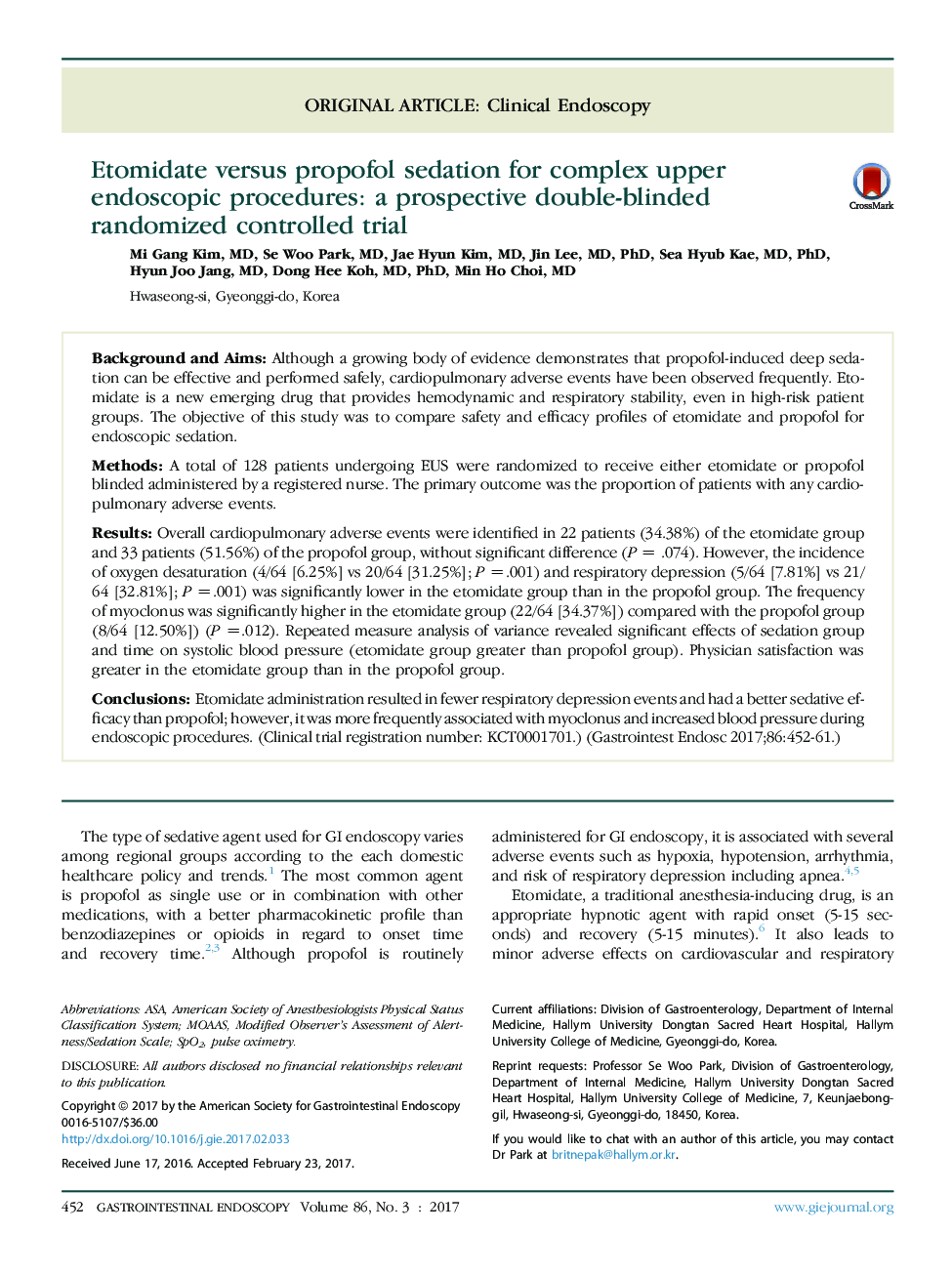| Article ID | Journal | Published Year | Pages | File Type |
|---|---|---|---|---|
| 5659223 | Gastrointestinal Endoscopy | 2017 | 10 Pages |
Background and AimsAlthough a growing body of evidence demonstrates that propofol-induced deep sedation can be effective and performed safely, cardiopulmonary adverse events have been observed frequently. Etomidate is a new emerging drug that provides hemodynamic and respiratory stability, even in high-risk patient groups. The objective of this study was to compare safety and efficacy profiles of etomidate and propofol for endoscopic sedation.MethodsA total of 128 patients undergoing EUS were randomized to receive either etomidate or propofol blinded administered by a registered nurse. The primary outcome was the proportion of patients with any cardiopulmonary adverse events.ResultsOverall cardiopulmonary adverse events were identified in 22 patients (34.38%) of the etomidate group and 33 patients (51.56%) of the propofol group, without significant difference (PÂ = .074). However, the incidence of oxygen desaturation (4/64 [6.25%] vs 20/64 [31.25%]; PÂ =.001) and respiratory depression (5/64 [7.81%] vs 21/64 [32.81%]; PÂ =.001) was significantly lower in the etomidate group than in the propofol group. The frequency of myoclonus was significantly higher in the etomidate group (22/64 [34.37%]) compared with the propofol group (8/64 [12.50%]) (PÂ =.012). Repeated measure analysis of variance revealed significant effects of sedation group and time on systolic blood pressure (etomidate group greater than propofol group). Physician satisfaction was greater in the etomidate group than in the propofol group.ConclusionsEtomidate administration resulted in fewer respiratory depression events and had a better sedative efficacy than propofol; however, it was more frequently associated with myoclonus and increased blood pressure during endoscopic procedures. (Clinical trial registration number: KCT0001701.)
